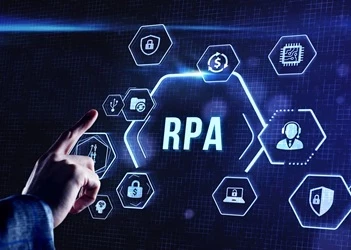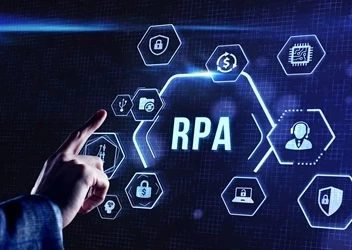Lessons from Spotify on data quality in intelligent automation
Sidney Madison Prescott, global head of intelligent automation at Spotify, explains why data-driven results are critical to ensure a successful IA implementation
Add bookmark
By focusing on data quality, accuracy and consistency across its systems, Sidney Madison Prescott has found the recipe to success in her role as global head of intelligent automation at music streaming giant Spotify.
Prescott started her career running a global program for data quality and governance at First Data (now Fiserv). Now at Spotify, she has led a program to set up an intelligent automation (IA) center of excellence (CoE) during the Covid-19 pandemic.
Having recently presented her story at PEX Live: Intelligent Automation and RPA 2021, PEX Network’s Alice Clochet caught up with Prescott to find out about her greatest challenges and ask what advice she would give fellow process excellence professionals.
PEX Network: What do you consider as your biggest achievement and which lesson do you reflect on most from your career?
Sidney Madison Prescott: The highlight of my career has been working at Spotify, because it has given me the opportunity to put into practice the learnings I have taken from my work with E-Trade and Bank of New York Mellon on a global scale.
These learnings helped me formulate an IA CoE during the pandemic composed of a high-performing team, which is driven by the idea that we can fundamentally change what work looks like and what it means to be a Spotify employee. Feedback from our internal stakeholders informs us of ways that we can improve as a team.
This success has been a product of my passion for being able to relate to business stakeholders, drill down into what their process pain points are, and figure out how my team can help the business from an engineering perspective. I am a firm believer in dismantling siloes between business and technology and in looking at a holistic digital transformation strategy that can enable the business to achieve objectives at an enterprise level.
PEX Network: What top tips would you offer your fellow process excellence professionals who are embarking on an IA implementation journey?
SMP: Firstly, start small with a pilot and a clear vision of what success looks like. You need to ensure that you manage business expectations about what IA will deliver for the enterprise.
Secondly, securing executive buy-in is critical for the success of a CoE. Even at the pilot or proof-of-concept (POC) stage, you need to make sure you have an executive sponsor who believes in the initiative and is passionate about the vision to drive enterprise-wide engagement.
Thirdly, you need to have a heavy focus on data metrics. This should start at the pilot stage and continue throughout the lifetime of your CoE.
The foundation for all of these tips is the task of building the understanding of the true return on investment (ROI) these automations can provide. This is where data is critical, because it supports the executive sponsorship and buy-in. It also helps to continuously improve the level of stakeholder engagement, because the CoE can provide the data-driven results generated by these automations.
PEX Network: What are the most important metrics to look for when analyzing data-driven results?
SMP: Typically, it is a mixture of system metrics that we look at for in bots, such as runtime, number of successful and failed runs. Looking at the deltas in the average runtimes of the bots can help you understand proactively whether there is something potentially impacting the performance of the bots.
The other piece of the puzzle is all the metrics around actual business processes. This includes, for example, the types of clients that are funneling through at the highest volume rates or certain data points from a document.
PEX Network: What developments do you predict for the robotic process automation (RPA) and IA spaces over the next few years?
SMP: In the RPA space, I believe we will see more vendors become publicly traded companies. We can expect to see a lot of mergers as there are a wide variety of RPA vendors in the market today and some standout leaders will likely acquire some of the smaller providers.
There will most likely be significant growth on the citizen developer front, including the advancement of additional low-code and no-code platform offerings, and the business upskilling side from a methodology perspective. Companies such as Google and Microsoft are already starting to get into the low-code and no-code space which indicates high interest in maturing the citizen developer side of the industry.
The industry is heading this way for a few different reasons. Firstly, it is a great way to get everyone in a company involved in digital transformation, which drives better adherence to the concept.
Secondly, the industry’s maturity model allows organizations to scale faster and tackle more processes once they start incorporating business users into the mix. This is because end users will build valuable automations on top of what the CoE is building.
Lastly, a data-driven focus on IA can bring more ROI as citizen developers tackle processes that the company has originally not considered. This way, organizations can increase their ROI because they are addressing the wider population of automation potential across the enterprise.
The final thing I see happening is that there will be fewer standalone RPA tools that only provide the function of software robots that are automating manual, tedious and repeatable tasks. We will start seeing more hyperautomation platforms and the amalgamation of RPA, and potentially some out-of-the-box machine-learning models at the lower-end of the AI spectrum. It will not be true cognition, but a hybrid of machines that are informed by their learnings and are able to make simple calculations of next steps based on the inputs they get from the automated processes.
PEX Network: What can readers look to gain from the recent book you authored, Robotic Process Automation: A Citizen Developer's Guide to Hyperautomation using UiPath StudioX?
SMP: The book focuses on answering the question of how we better inform users and make RPA more relatable. We provide hands-on knowledge through a wide variety of exercises in the book that tackle traditional business challenges across industries.
We wanted anyone who picked up the book to be able to understand the concepts of RPA, what constitutes a good use case for this type of automation, and how to design a repeatable and scalable process. We also have added data points to inform and provide inputs for automations and a GitHub repository to see the different levels of code.
Learn more about Spotify’s IA CoE initiatives by watching Prescott’s presentation at PEX Live: Intelligent Automation and RPA 2021 and check out her book to discover a hands-on approach to RPA.




























